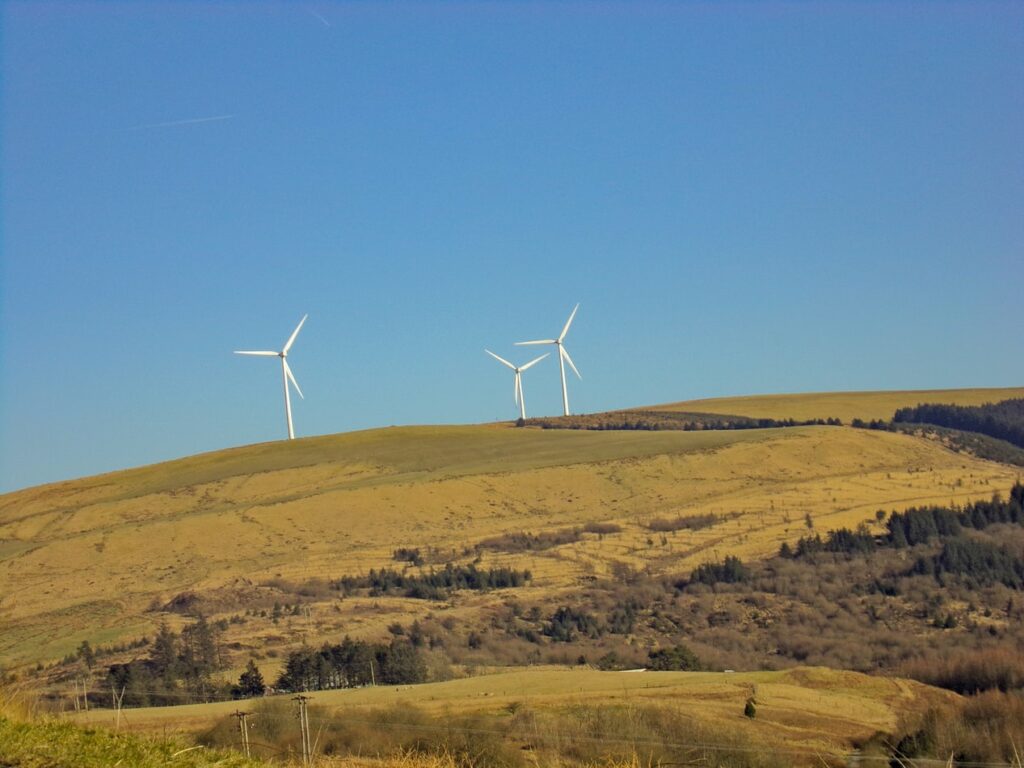Climate Change And Business: How You Can Start Making Positive Changes

There is no shortage of immensely difficult issues facing businesses in the months ahead. Everything from the tail end (let’s hope) of the pandemic to supply shortages and Brexit have left a lot of business owners feeling extremely anxious. However, it seems fair to say that there is no issue quite as urgent or all-consuming as that of the climate crisis.
It speaks to the severity of the situation that it continued to make headlines even during the worst months of the pandemic, whether it was the extreme weather events across the world (the ice storm in Texas, the heat wave in Seattle, the flooding in China), the visible evidence of what the removal of human forces had on the natural world (such as the canals turning clear in Venice during lockdown), or the fact that we were seeing business leaders and politicians forced into making commitments, or at least committing to making commitments. What is going to become increasingly important as we look ahead to the future is to take decisive action now. Here are some steps that all business owners need to start taking.
Audit Your Footprint
The first thing you need to do if you want to start making positive changes is to find out what kind of carbon and global warming footprint you are currently creating. This will obviously vary a huge amount from business to business, but do not assume that your company has a small environmental impact just because you are not using industrial machinery or burning fossil fuels as part of your daily business. You need to factor in everything from international travel to your heating bills. There are firms that you can hire to provide you with a detailed breakdown of your business’ environmental impact and greenhouse gas emissions and the results may shock you.
Assess Who You Are Doing Business With
Of course, it is important to remember that your responsibilities go beyond your own office. Every business has to work with partners, investors, and suppliers, and you need to make sure that they are taking their commitment to a greener future as seriously as you are. Talk to the people that you do business with about their plans to cut down on their greenhouse gas emissions and discuss what you can both do to make your working relationship better for the environment.
It is also very important to think about the packaging that you are using. Much has been made about the amount of waste packaging that is created by businesses, and with online shopping becoming a firm part of the new normal, you need to make sure that you are not contributing to the problem. Make sure that you are only using as much packaging as you need and avoid using plastic and other non-biodegradable products.
Educate Yourself
One of the biggest obstacles to making big positive changes is not knowing where you should start. Climate change is an issue that is so overwhelmingly huge that it can sometimes feel like any action you take is a drop in the ocean. But getting to grips with the immediate challenges and putting them into context can help you to start having a positive impact that will have an impact. A course in climate change risk, adaptation measures and low carbon innovation will help you to craft a business plan going forward that will make sure that you are looking to the future instead of rolling with the punches as they arrive. This type of course can benefit business owners looking to create a business model that is not only resilient enough to weather the challenges of a low-carbon, zero emission future, but takes advantage of the innovations that this future has to offer.
Don’t Be Afraid To Start Small
We all know that big changes can sometimes only flourish when they are grounded in good habits. One of the most effective things that you can do as the owner of a business is establish good environmental practices in your office and in your day to day. What better place to start than recycling? Make sure that your office is well equipped with recycle bins and do your best to minimise the use of plastics. Something as simple as removing individual employee rubbish bins can incentivise people to think twice about what they are doing with their waste material. Think about providing each of your employees with a reusable water container or reusable coffee cup and you’ll see how much you cut down on the amount of waste created every day.
Of course, waste goes beyond paper and plastics. Electronic waste is a huge problem, and it is vital that you find a way to dispose of it properly. Make sure that your employees are all turning off their machines before they leave the office at the end of the day and assign responsibility for turning off the lights. Look at investing in newer computers and other hardware that have a better energy efficiency rating and think about switching out your light bulbs for LED bulbs (which create far less waste energy). Create an incentive programme for your employees that will reward anyone who stops using their car to get to work or start carpooling. These little steps all sound like they will have a very small impact, but together they add up and they will create a culture of environmental awareness in your office.
Involve Your Employees
It is important to remember that the climate crisis is not just something that business owners are worried about. We all see the news and the warnings, and we all wonder if there is something that we can do. As the owner of a business, you have the power to make your employees feel like they are part of something bigger than themselves. Encourage them to think about how your business can take steps towards being greener and look at what kind of incentives you can offer to encourage people to come forward with ideas.
This is not just about brainstorming solutions; it will provide a real morale boost to your team. Whether it’s asking what kind of charities or organisations you could be working with or organising team building days to get out and have a positive impact, this will bring your employees closer together. It is also worth talking to your employees about whether working remotely is a sustainable option if you want to remove the carbon footprint of a commute and a centralised office altogether.
Own Your Progress And Learning On Social Media
Businesses will be called on to answer questions about their climate policy on social media, and if you are taking positive steps then you should not be shy about sharing this. Of course, people will be able to see past empty platitudes and hollow promises so you should be prepared to answer some tough questions and recognise room for improvement. While it may occasionally be difficult to be challenged on the progress you are making and the speed with which you are doing it, it is important to recognise that this is no longer something that is a factor of an accountable business and a good PR strategy. This is going to be increasingly vital for all businesses going forward.


